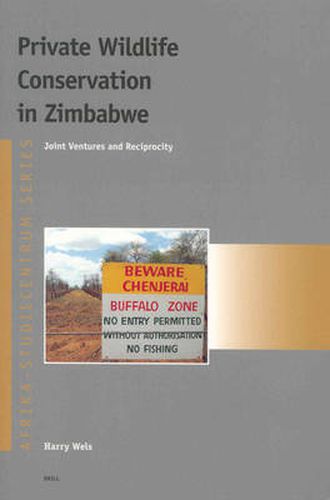Readings Newsletter
Become a Readings Member to make your shopping experience even easier.
Sign in or sign up for free!
You’re not far away from qualifying for FREE standard shipping within Australia
You’ve qualified for FREE standard shipping within Australia
The cart is loading…






This book is the first about private wildlife conservation and community involvement in Zimbabwe. It is a case study based on ethnographic fieldwork done in 1998. It focuses on the joint venture between a private wildlife conservation initiative, the Save Valley Conservancy, and its surrounding communities in terms of reciprocal exchange and the land question. It makes clear, amongst other things, that the current political tragedy in Zimbabwe about land did not start when Mugabe lost the referendum in February 2000. The book tries to offer an explanation for the unforgiving route that Mugabe has obviously taken in the land question, despite his words of reconciliation when he came to power in 1980. This book is of particular interest to students, practitioners and academics in the fields of (private) wildlife conservation, community participation and organisational co-operation.
$9.00 standard shipping within Australia
FREE standard shipping within Australia for orders over $100.00
Express & International shipping calculated at checkout
This book is the first about private wildlife conservation and community involvement in Zimbabwe. It is a case study based on ethnographic fieldwork done in 1998. It focuses on the joint venture between a private wildlife conservation initiative, the Save Valley Conservancy, and its surrounding communities in terms of reciprocal exchange and the land question. It makes clear, amongst other things, that the current political tragedy in Zimbabwe about land did not start when Mugabe lost the referendum in February 2000. The book tries to offer an explanation for the unforgiving route that Mugabe has obviously taken in the land question, despite his words of reconciliation when he came to power in 1980. This book is of particular interest to students, practitioners and academics in the fields of (private) wildlife conservation, community participation and organisational co-operation.